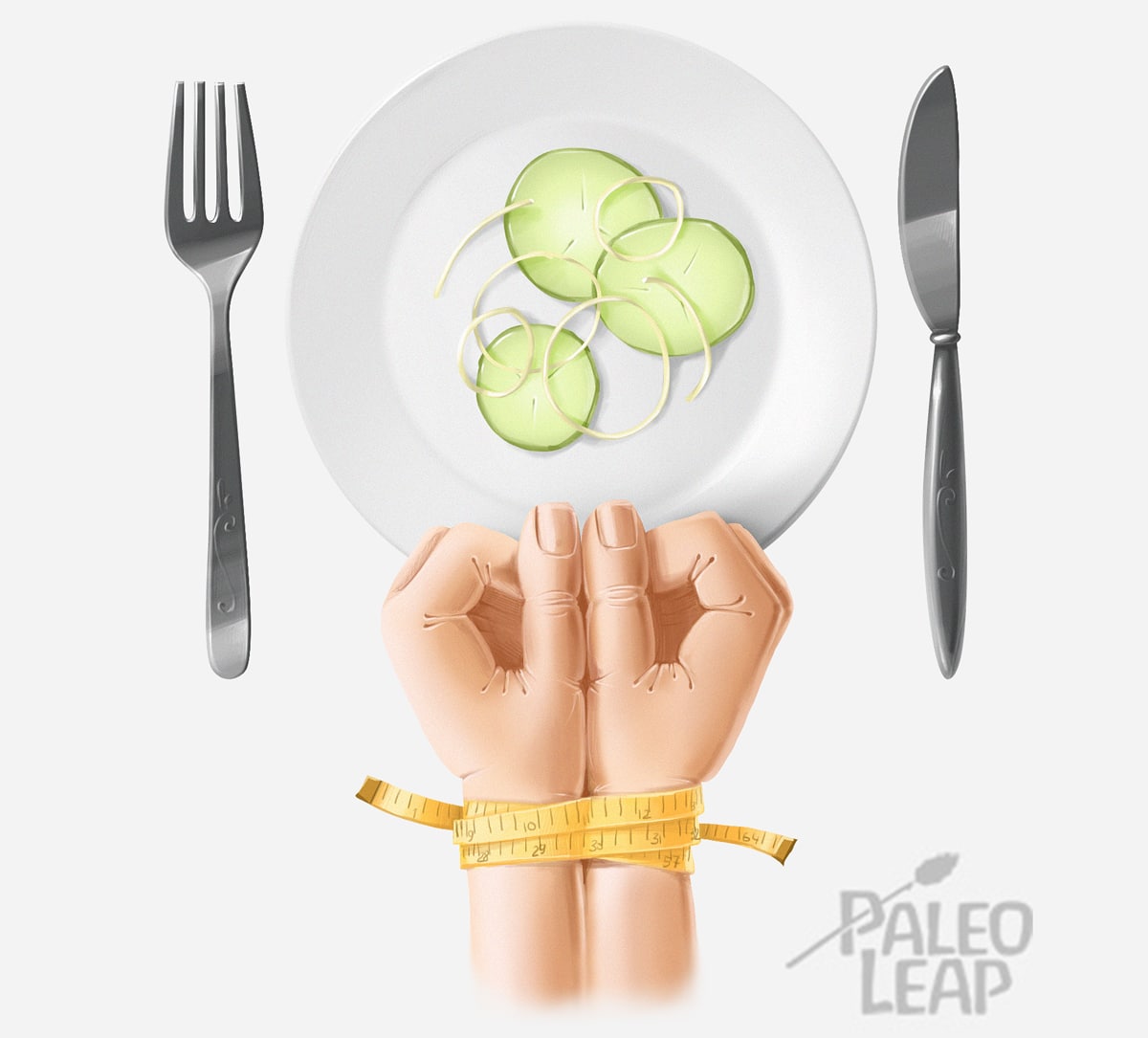
Quite a few studies in both men and women have shown that healthy adults can use keto for weight loss with minimal health risks, as long as they understand the diet and do it in a reasonable way.
One research group even did a few studies on keto specifically in women. Admittedly, they studied women with reproductive cancers, but they’ve published quite a few papers showing the general benefits of the diet, unrelated to the cancer. For example, there’s this one, this one, and this one. Together, these studies found that keto has benefits for weight, insulin sensitivity, and food cravings in women, without any noticeable negative effects on blood cholesterol.
But there are a few special concerns or considerations that women might want to bear in mind, like...
- Hormonal and reproductive health (more sensitive to diet changes in women than in men)
- Nutrients of concern (like calcium)
Here’s a look at some of the studies that have been done on ketogenic diets in women specifically and some female-specific concerns.
Hormonal and reproductive health: concerns and benefits
Let’s be clear: it’s totally fine for women not to want children. This is the 21st century. But even if you’re 1000% sure that you never, ever want to be pregnant or have a baby, it’s still good to have a healthy and functional reproductive system. Think of it like an appendix: you might not use your appendix, but that doesn’t mean you want appendicitis.
Keto has some specific effects on the female reproductive system and women’s hormonal health in general. Keto diets work in large part because the intense carb restriction makes it easier to reduce calories without feeling hungry. This can actually be dangerous or beneficial for female reproductive health, depending on the individual woman and what her metabolic health is like going in..
Problems to be aware of
One problem that women can experience on keto diets comes from under-eating to the point of a physically dangerous energy deficit or loss of body fat below healthy levels. Intentionally or unintentionally, it’s very possible to eat too little on keto. Many people who try keto tend to be health-conscious types who like to work out a lot, which just compounds the problem because they’re eating less, but pushing themselves through hard workouts that demand more protein and calories for recovery.
This is even more dangerous for women than for men because the female body is so sensitive to starvation. This very comprehensive and free IOC position paper explains how extreme calorie restriction combined with exercise can induce such a severe energy deficit that normal reproductive functions shut down and menstruation stops. Along with that comes bone density loss, a greater risk of bone stress injuries, a greater risk of anemia, gastrointestinal problems, and psychological symptoms. (This used to be called the Female Athlete Triad.)

Dieting to the point of losing your period can also happen without any exercise at all, and it’s just as dangerous that way!
None of this is unique to keto; it’s just about the calorie deficit. But the appetite-suppressing effects of a keto diet increase the danger that women trying to lose weight might not realize how extreme they’re being, especially since they’ll likely be getting nothing but compliments about how “healthy” they’re eating and how “good” they’re being for consuming almost nothing. (Hint: if you have lost your regular menstrual cycle due to under-eating, you are not healthy, no matter what the scale says.)
And of course, the appetite suppression also makes the diet attractive to women struggling with disordered eating behavior. That’s not really a “risk of keto;” it’s a risk of abusing keto, but it does exist. It’s beyond the scope of one post to even begin to deal with this, but this sounds like someone you know, reach out to them - you might save a life.
Potential benefits for PCOS?
That was a big list of potential problems, but on the other hand, keto has actually shown some benefits for women with polycystic ovarian syndrome (PCOS), which is typically marked by insulin resistance, weight gain, and other metabolic problems that tend to respond well to carb restriction.
In this very small study, the researchers studied 4 women with PCOS who were trying to conceive. For 6 months, the women were put on a ketogenic protein-sparing modified fast (no more than 20 grams net carbs), plus metformin if they weren’t already taking it. All the patients lost weight and started having regular periods again, and two of them conceived. This paper on diet and PCOS cited keto as a potentially valuable approach, and this review of low-carb diets in women with overweight and obesity found significant hormonal benefits. These are all pretty encouraging results!
Pregnancy and breastfeeding
Pregnancy is always a special case - it’s hard to find any research on ketogenic diets during pregnancy. One study followed just two women and couldn’t rule out safety concerns. Another case study reported that a woman who ate a strict keto diet during breastfeeding actually experienced life-threatening complications. Bearing in mind that this was one person, the authors still concluded that “Although ketogenic diet has been shown to be safe in nonpregnant individuals, the safety of this diet in lactating mothers is not known.”
Basically, no advice here for the safety of ketogenic diets during pregnancy or breastfeeding - except to talk to a doctor!
Nutrients of concern: calcium and folate
Keto might not feel like a sacrifice, but it’s objectively a restrictive diet in that it completely eliminates several food groups and severely limits others. That’s not a value judgement; it’s just a fact. And because it’s so restrictive, there are some nutrients that women might want to pay attention to.
Calcium

Women on totally unrestricted diets often get less calcium than they need, and keto adds an extra challenge thanks to the carb restriction. A lot of dairy foods are limited because of the carbs (yogurt, milk, and sometimes even cheese need to be restricted), and not all keto eaters even eat dairy to begin with. Some of the best vegetable sources of calcium (collard greens, for example) are also relatively high in carbs by keto standards. Basically, what you’re left with is bone-in fish, bones, dairy products if you eat them, and some leafy greens.
The RDA of calcium for women is 1,300 mg for teenagers, 1,000 mg for adults up to 50, and 1,200 mg for older adults. If you want to get really into the weeds with bioavailability of calcium from different foods, you can look here, but here’s a brief rundown of some keto calcium sources, with carb counts.
| Food | Calcium (per serving) | Net carbs (per serving) |
| Collard greens (1 cup cooked) | 184 mg | 2.1 grams |
| Bone-in sardines (1 can) | 351 mg | 0 grams |
| Bone-in canned salmon (3 ounces) | 203 mg | 0 grams |
| Cheddar cheese (2 slices) | 298 mg | 1.2 grams |
It’s certainly possible to get enough calcium just from eating keto with no supplements, but most people probably won’t. If you’re not big on leafy greens or bone-in fish, or if you don’t eat any dairy, this might be a situation where supplements come to the rescue.
Folate and folic acid
Folate is a B vitamin naturally found in food; folic acid is just the synthetic form of that same vitamin.
Folate/folic acid in the diet is a big concern for women who are pregnant or planning to become pregnant, because it prevents some kinds of birth defects. Keto eliminates one big source of folic acid, namely fortified foods like bread, flour, rice, and pasta. Some keto foods (like beef liver, spinach, asparagus, and avocado) are high in folate, but most people aren’t eating beef liver on the regular, even on keto.
Most doctors recommend folic acid supplements to any woman trying to conceive, currently pregnant, or breastfeeding, and there’s really no reason why keto would change that.
Yes, keto is fine for women.
There are some general risks and concerns that apply to everyone eating keto, like the need to supplement with electrolytes to avoid cramps. It’s important for everyone to understand the diet and do it intelligently - for women, that might mean paying particular attention to calcium, or making sure they’re getting enough food to stay well-nourished. There are always some people - men and women - who just don’t thrive on low-carb diets for whatever reason, and that’s fine.
There are also some specific issues and topics that apply primarily or only to women. But on the whole, there’s very little evidence that healthy women who aren’t pregnant should be more concerned about keto than about any other diet. For any individual woman, keto might work or it might not work; that's also true for any particular individual man. There's no evidence that women in general can't or shouldn't eat keto - in fact, there are lots of women who do keto and love it! And there’s even some evidence that keto diets may be helpful with some female-specific concerns, like PCOS.





Leave a Reply